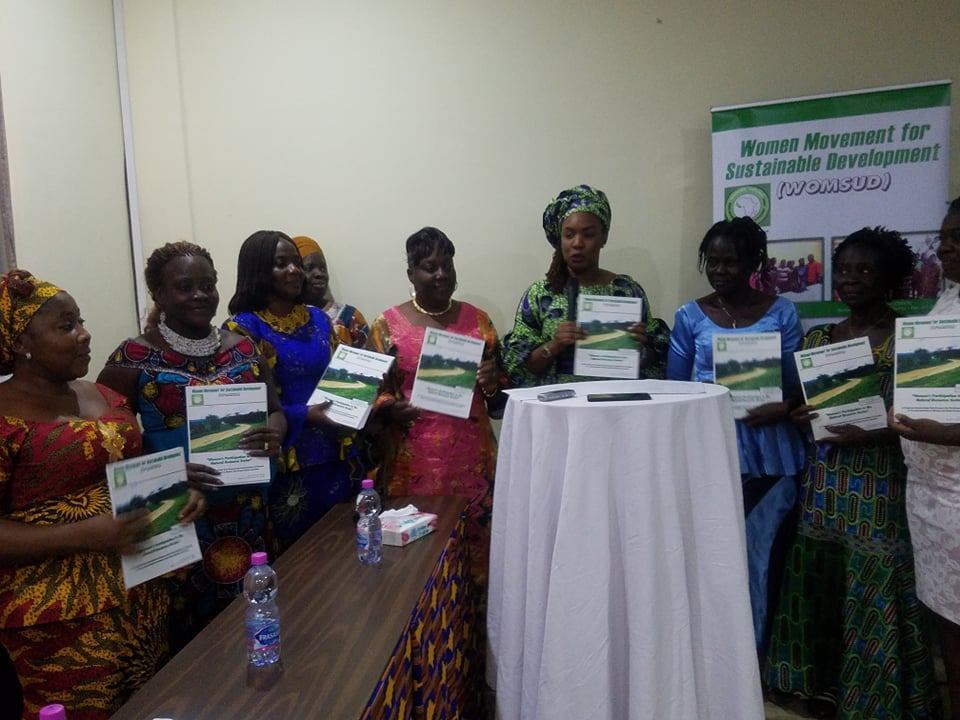Women Movement for Sustainable Development (WOMUD) on Tuesday, July 23, 2019, launched the Women’s Participation in the Natural Resources Sectors Report under the title, “Strengthening the Voices of Women in the ongoing land debate in the country.”
The purpose of the program is to promote women’s access to control over productive resources, including land, natural resources that guarantee their rights to participate in decision-making and leadership processes.
The study affected 15 communities in Grand Bassa and Nimba counties from October 24, 2018, to January 23, 2019.
Ms Grace Y. Yeanay, WOMSUD executive director in her overview statement, said the project provided awareness and legal education to communities on the provisions of the approved land rights policy for Liberia.
Ms Yeanay said the legal education component also strengthened the understanding of local women about property rights and provided targeted skills on communication, media engagement, mobilization and cohesion building to enable women and girls advocate for their rights within the framework of the land rights policy, and those related to natural resources.
She said the organization is grateful to the government for the passage of the Land Rights Act (LLR).
“In addition to the training,” she said, “the project supported local and county level campaigns though the project conducted basic; testing of the waters, assessment to gauge the experiences of women regarding natural resource issues, and property rights.”
Mrs Yeanay added, “The scope and depth of the assessment were very much inadequate to establish the extent to which women were involved in the natural resource sector, and to study related determinants.”
The study was conducted on the objectives of determining the involvement and participation of women in the natural resource sector, specifically in the gold, diamond, iron ore, palm oil, timber, cocoa, and rubber industries.

The study also showed that 17.2 per cent of women is participating in the natural resource sector, while 82.8 per cent not participating.
“Assessing the extent to which communities, especially women and girls are positively or negatively affected by the operation of those components, including how the positive impact of natural resources activities have on women’s involvement in decision-making, community development, and local leadership activities in Grand Bassa amounts to 62.2 per cent negative impact, while in Nimba, negative impact also amounts to 75.2 per cent, but on the other hand, the positive impact in Bassa constitutes 0.8 per cent and Nimba 39.2 per cent,” Ms. Yeanay said.
Julie Fatormah Wiah, Lofa County District #2 Representative, who earlier welcomed the report from the study added that the report will help legislators make an informed decision when issues of women and natural resources are brought on the floor.
Wieh called on the women to take advantage of the passage of the Land Rights Act, which she said will benefit them in every sector.
She said as chairperson on the House’s Committee on Gender Equity, Child Development, and Social Services, she will ensure that there is a legislation to empower women and propel them for opportunities ahead.
Ellen O. Pratt, a commissioner at the LLA, who served as chief launcher said the community land development initiative component in the Act will empower Liberian women and make them take ownership of land.
She said LLA is committed to supporting the work WOMSUD continues to do across the country; ensuring that women have equal participation in natural resources.

